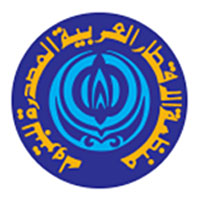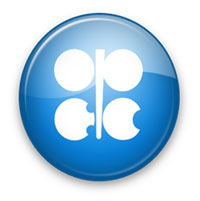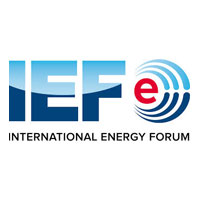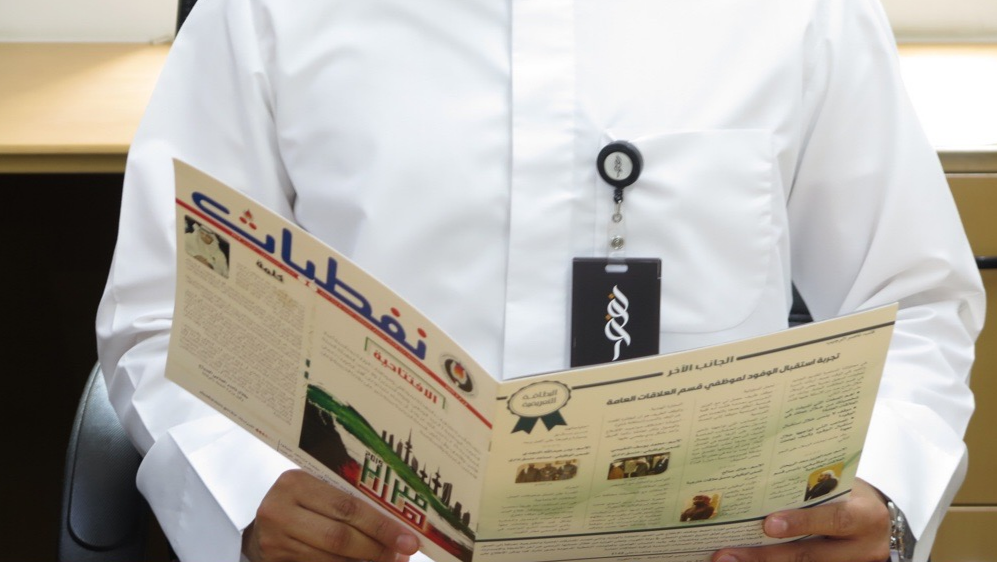The Cooperation Council for the Arab States of the Gulf (GCC)
 On 21st Rajab 1401 AH corresponding to 25th May 1981, Their Majesties and Highnesses, the leaders of the United Arab Emirates, State of Bahrain, Kingdom of Saudi Arabia, Sultanate of Oman, State of Qatar and State of Kuwait met in Abu Dhabi, United Arab Emirates, where they reached a cooperative framework joining the six states to effect coordination, integration and inter-connection among the Member States in all fields in order to achieve unity, according to article 4 of the GCC Charter. Article 4 also emphasized the deepening and strengthening of relations, links and areas of cooperation among their citizens. The underpinnings which are clearly provided for in the preamble of the GCC Charter, confirm the special relations, common qualities and similar systems founded on the creed of Islam, faith in a common destiny and sharing one goal, and that the cooperation among these states would serve the sublime objectives of the Arab nation.
On 21st Rajab 1401 AH corresponding to 25th May 1981, Their Majesties and Highnesses, the leaders of the United Arab Emirates, State of Bahrain, Kingdom of Saudi Arabia, Sultanate of Oman, State of Qatar and State of Kuwait met in Abu Dhabi, United Arab Emirates, where they reached a cooperative framework joining the six states to effect coordination, integration and inter-connection among the Member States in all fields in order to achieve unity, according to article 4 of the GCC Charter. Article 4 also emphasized the deepening and strengthening of relations, links and areas of cooperation among their citizens. The underpinnings which are clearly provided for in the preamble of the GCC Charter, confirm the special relations, common qualities and similar systems founded on the creed of Islam, faith in a common destiny and sharing one goal, and that the cooperation among these states would serve the sublime objectives of the Arab nation.
Organization of Arab Petroleum Exporting Countries (OAPEC)
OAPEC's Establishment
 The Organization of Arab Petroleum Exporting Countries (OAPEC) is a regional inter-governmental organization established by an agreement signed in Beirut on January 9, 1968 by Kuwait, Libyan (Kingdom of Libya at that time) and the Kingdom of Saudi Arabia. The three founding members chose the state of Kuwait for the Organizations' domicile and headquarters.
The Organization of Arab Petroleum Exporting Countries (OAPEC) is a regional inter-governmental organization established by an agreement signed in Beirut on January 9, 1968 by Kuwait, Libyan (Kingdom of Libya at that time) and the Kingdom of Saudi Arabia. The three founding members chose the state of Kuwait for the Organizations' domicile and headquarters.
Recognizing the role of Petroleum as a principal and basic source of its members' income, OAPEC is concerned with the development and prosperity of the world petroleum industry by fostering close and fruitful cooperation among its members.
It is guided by the belief in the importance of building an integrated petroleum industry as a cornerstone for future economic integration amongst Arab countries and contributes to the effective use of the resources of member countries through sponsoring joint ventures.

By 1982 the membership of the Organization increased to eleven Arab oil exporting countries namely: Algeria (1970), Bahrain (1970) (now Kingdom of Bahrain), Egypt (1973), Iraq (1972), Kuwait (1968), Libya (1968), Qatar (1970), Kingdom of Saudi Arabia (1968), Syria (1972), Tunisia (1982) and United Arab Emirates (1970).
In 1986, Tunisia submitted its membership withdrawal request from the Organization. The Ministerial Council deliberated the request and agreed to suspend Tunisia's rights and obligations in OAPEC until such a time that Tunisia chooses to reactivate its membership.
The objective of the organization:
The principal objective of the Organization is the cooperation of the members in various forms of economic activity in the petroleum industry, the realization of the closest ties among them in this field, the determination of ways and means of safeguarding the legitimate interests of its members in the industry, individually and collectively, the unification of efforts to ensure the flow of petroleum to its consumption markets on equitable and reasonable terms, and the creation of suitable climate for the capital and expertise invested in the petroleum industry in the member countries.
In pursuit of the said objectives, the Organization shall in particular:
- Take adequate measures for the coordination of the petroleum economic policies of its members.
- Take adequate measures for the harmonization of the legal systems in force in the member countries to the extent necessary to enable the Organization to carry out its activity.
- Assist members to exchange information and expertise and provide training and employment opportunities for citizens of member countries where such possibilities exist.
- Promote cooperation among members in working out solutions to problems facing them in the petroleum industry.
- Utilize the member resources and common potentialities in establishing joint projects in various phases of petroleum industry such as may be undertaken by all the members of those of them that my be interested in such projects.
Member Countries :
- Kuwait
- Kingdom of Bahrain
- Qatar
- Kingdom of Saudi Arabia
- United Arab Emirates
- Republic of Iraq
- Arab Republic of Egypt
- State of Lybia
- Republic of Tunisia
- Syrian Arab Republic
Organization of the Petroleum Exporting Countries (OPEC)

The Organization of the Petroleum Exporting Countries (OPEC) is a permanent, intergovernmental Organization, created at the Baghdad Conference on September 10–14, 1960, by Iran, Iraq, Kuwait, Saudi Arabia and Venezuela. The five Founding Members were later joined by nine other Members: Qatar (1961); Indonesia (1962) – suspended its membership from January 2009; Libya (1962); United Arab Emirates (1967); Algeria (1969); Nigeria (1971); Ecuador (1973) – suspended its membership from December 1992-October 2007; Angola (2007) and Gabon (1975–1994). OPEC had its headquarters in Geneva, Switzerland, in the first five years of its existence. This was moved to Vienna, Austria, on September 1, 1965.
OPEC's objective is to co-ordinate and unify petroleum policies among Member Countries, in order to secure fair and stable prices for petroleum producers; an efficient, economic and regular supply of petroleum to consuming nations; and a fair return on capital to those investing in the industry.
International Energy forum

The International Energy Forum is the world's largest gathering of the energy ministers. The Forum's countries are account for more than 90% of the global supply of and demand for oil and gas. The International Energy Forum includes the members of the International Energy Agency which represents consumer countries in the OECD, the member countries of the Organization of Petroleum Exporting Countries (OPEC) and the major energy influencing countries in the Forum, including Brazil, China, India, Mexico, Russia and South Africa.
It also represents such emerging economies as China and India in addition to Russia, the world's current largest producer of oil, with a production of 12 million barrels per day although its exports are by far less than the exports of the Kingdom of Saudi Arabia. The Forum is managed by an Executive Board(The General Secretariat of the Forum". Following every ministerial meeting of the Forum a new Executive Board is formed with emphasis on the good cooperation existing between consumers and producers as well as between developing and developed countries.
The extend and diversity of this participation attests to the status of the International Energy Forum as an unbiased mediator. Through the Forum and its various activities, the ministers the ministers, officers, executive managers in the energy industry and other experts engage in dialogues that focus on the increasing importance of the global energy security.
The Forum and the global energy dialogue are supported by the permanent General Secretariat based in Riyadh, Kingdom of Saudi Arabia. The General Secretariat initiates dialogue and cooperation among producers and consumers of petroleum and energy, which started in 1991 with a view to build bridges of on-going communication among producing and consuming countries and the petroleum industry, on the basis of the common interests of all parties. The General Secretariat further seeks to provide a comprehensive and specific data base that includes studies and research work on all energy industry-related subjects. It also seeks to improve the collection methods and quality of oil and gas related data and their dissemination. Indeed, the establishment of the General Secretariat has had a far-reaching effect on the International Energy Forum method of operation, thereby making the dialogue between both sides better organized and institutionalized.
at the ministerial level. The participants then agreed to draft a charter that would include provisions addressing such matters as the work, budget and a permanent Board of Directors to supervise the work of the General Secretariat. From those early efforts sprang the idea of establishing the International Energy Forum for dialogue among consumers and producers, starting with the Paris meeting of 1991, with a view to contain and control fluctuations in the oil market, bridge the gaps among the positions of the various producers represented by OPEC and the consumers represented by the International Energy Agency which had been formed in 1974. Those petroleum market fluctuations arise from and are affected by international political events, particularly in the oil producing countries. Successive meetings were held between the producing and consuming countries until the year 2000.
Member Countries:
The 74 IEF member countries account for almost 90% of world oil and gas supply and demand.
Eligibility for membership is determined under Section III of the IEF Charter.
Kuwait - Saudi Arabia - Bahrain - Qatar - United Arab Emirates - Oman - Algeria - Afghanistan - Argentina - Australia - Austria - Bangladesh - Belgium - Brunei - Bulgaria -
Burkina Faso - Canada - Chad - China - Comoros - Cyprus - Czech Republic - Denmark - Djibouti - Ecuador - Egypt - Eritrea - Ethiopia - Finland - France - Angola - Germany - Greece - Guinea - Hungary - India - Iran - Iraq - Ireland - Italy - Japan - Kazakhstan - SouthKorea - Malaysia - Mali - Mauritania - Mexico - Switzerland - Tanzania - Tunisia - Turkey - Uganda - United Arab Emirates - United States - UnitedKingdom - Venezuela - Vietnam - Yemen - Zambia - Morocc - Mozambique - Netherlands - NewZealand - Niger - Nigeria - Norway - Philippines - Poland - Russia - Senegal - Singapore - Somalia - SouthAfrica - Sudan





